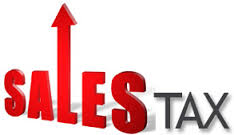“Details matter.” That’s what a client recently said as I was handing her a series of amended tax returns for 2014 and 2015 which included around $18,000 in additional taxes owed. Add to that a projection of an additional $37,000 owed for 2016. Why? Four words. Four little words cost my client over $55,000 in unexpected taxes, and I am helpless to do anything about it at this point.
“Details matter.” How simple, yet how profound.
The four words? “Tenants-by-the-entireties.” What does that even mean?
My client’s husband had 50/50 ownership of several rental properties with an unrelated partner. My client’s husband began to have failing health and passed away in 2014. Before his passing, they approached a lawyer to provide some estate planning.
Fortunately, the lawyer established an estate where shares of the partnership would be passed to the children and heirs. This not only kept the partnership from terminating upon my client’s husband’s death but it also meant the partnership was no longer a 50/50 split. Simply put, you need two people for a partnership. If one passes away, the partnership no longer has two individuals and therefore can’t exist. So the lawyer adequately addressed one concern by passing the partnership on to the children and heirs. However, he also did something else that he probably shouldn’t have done. He admitted the wife into the partnership as “tenants-by-the-entireties.” Those four words – “tenants by the entireties” – cost my client about $55,000.
When my client’s husband passed away, the partnership interest (aka ownership) would have automatically gone to his surviving spouse. The fair market value of the partnership interest would have passed through his estate, and his wife would have inherited the properties/partnership interest at full fair market value. So if the properties were sold the day after the husband’s passing, the wife wouldn’t pay a penny in federal income tax because it was handled through the estate.
What should have been a simple inheritance was complicated by the lawyer admitting the wife to the partnership, creating a tenancy by the entireties. From a tax perspective, she then owned 50% of her husband’s share and became ineligible to inherit the whole ownership at fair market value. She was only eligible to inherit half of it at fair market value. As a result, she had to pay taxes on her half of her husband’s share.
Communication is Key
While this is a very complicated area of tax law, the point of the story is this: Whether you have a multi-million-dollar business or as little as two rental properties, make sure your team is in communication with each other. Your accountant, lawyer, insurance agent, investment broker, etc., should all be on the same page. I recommend your accountant should be the “quarterback” guiding the team and identifying the “details” that matter.
It wasn’t until after we drafted the final partnership return in 2016 that we discovered the partnership agreement as it was revised. At that point, there was nothing we could do. While the lawyer did what he did to ease the transfer of ownership, it cost my client approximately $55,000.
Don’t be deceived into thinking this couldn’t happen to you. These particular clients weren’t “big clients with a lot of money.” There were only two rental properties. So please, hear my plea, and that of my clients: “Details matter.”
If you have questions about how your estate planning affects your tax situation, we’d be happy to help. Contact us or call 215-723-4881.

Brent Thompson, CPA has been with Canon Capital since 1998. He provides management advisory services, tax and general business planning, tax preparation, and financial statement preparation and review services for numerous businesses and their owners. He holds the Certified Management Accountant (CMA) designation and a Chartered Global Management Accountant (CGMA) designation. Brent is a member of the AICPA and the Institute of CMA’s.
This article is designed for general information only. The information presented should not be construed to be formal advice nor the formation of a client relationship.


